Second Marine Commander Fired 8 Months After Training Mishap That Killed 9
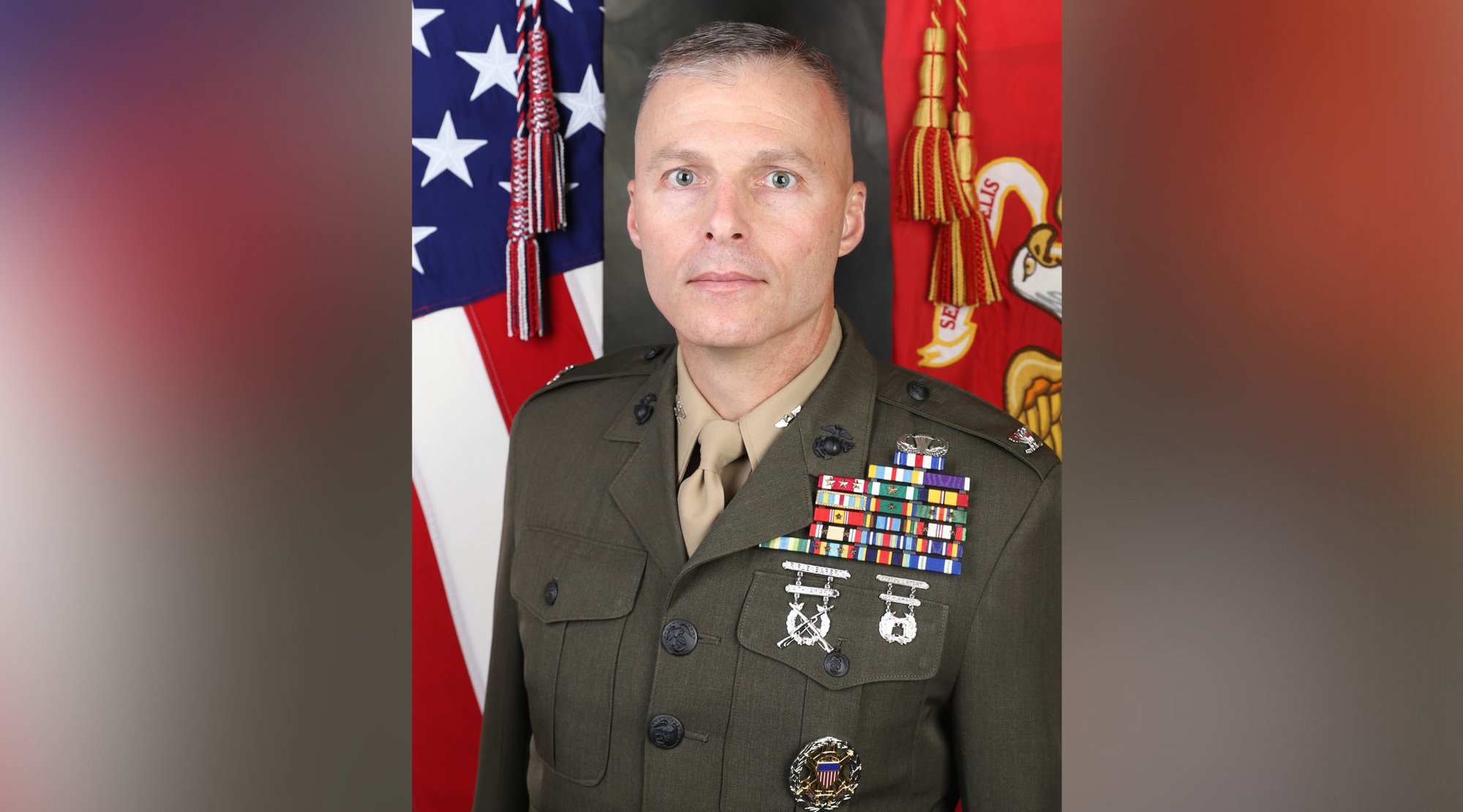
Col. Christopher J. Bronzi. US Marine Corps photo.
The commanding officer of the California-based Marine expeditionary unit that suffered the deaths of nine members during an amphibious assault vehicle (AAV) training mishap last summer was removed from his post Tuesday, Marine officials announced in a press release.
Lt. Gen. Steven R. Rudder, commander, US Marine Corps Forces Pacific, relieved Col. Christopher J. Bronzi, commanding officer, 15th Marine Expeditionary Unit, due to a loss of trust and confidence in his ability to command, following completion of the command investigation into the mishap, which occurred off the coast of San Clemente Island, California, on July 30, 2020.
Bronzi (pictured above) is the second Marine commander to be relieved in the wake of the mishap.
Lt. Gen. Karsten Heckl, commanding general of I Marine Expeditionary Force, relieved Lt. Col. Michael J. Regner, commanding officer of Battalion Landing Team 1st Battalion 4th Marines, in October.
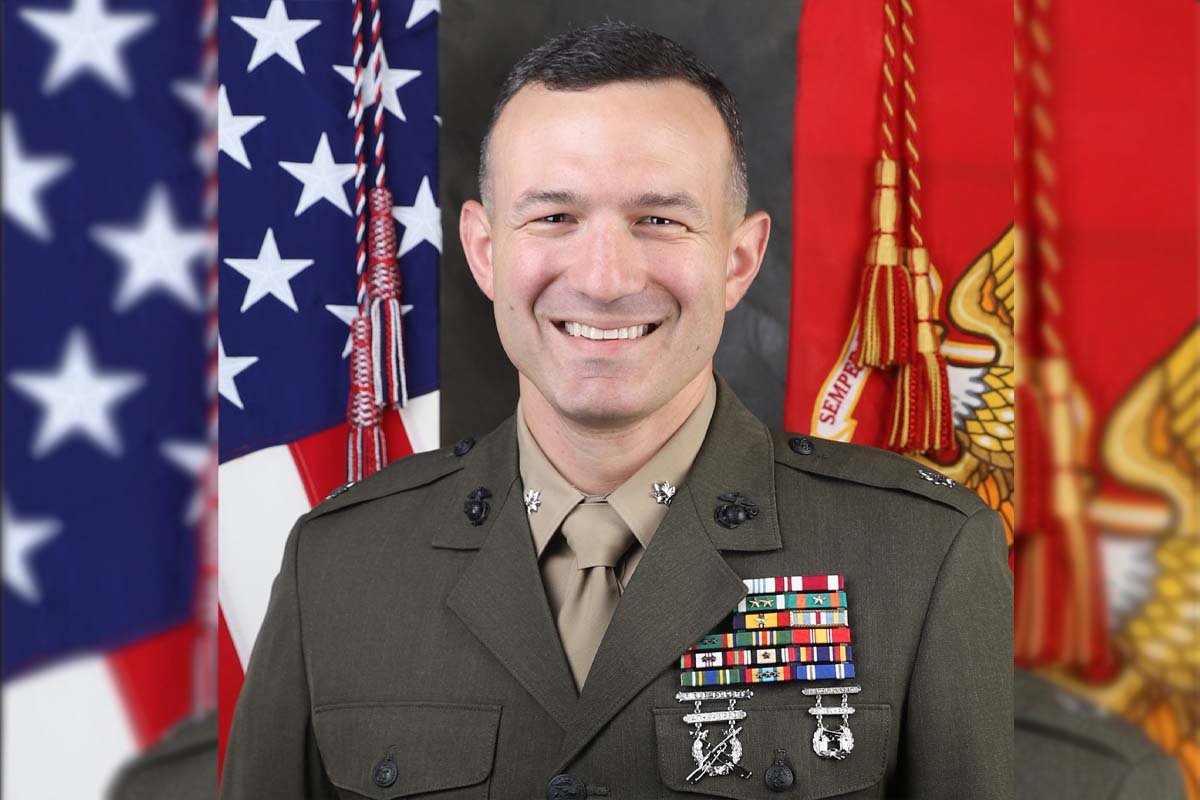
A battalion landing team provides a battalion of Marine infantry forces, reinforced with additional ground combat units and weapon systems, to form the ground combat element of a Marine Expeditionary Unit. BLT 1/4 was attached to the 15th Marine Expeditionary Unit.
The deadly mishap occurred during a shore-to-ship maneuver about a mile off the coast of San Clemente Island. The AAV had been packed with 16 service members when it began taking on water around 5:45 p.m. The AAV was among a group of 13 AAVs returning to the amphibious ship USS Somerset. Service members on two other AAVs and those on a safety boat accompanying the vehicles rendered immediate aid, rescuing eight of the imperiled Marines, one of whom later died.
Following an extensive Navy search and salvage operation, the remains of the seven Marines and one sailor who perished were recovered a week after the mishap.
Currently, the 15th MEU is operating in the Middle East with the Makin Island Amphibious Ready Group. Col. Fridrik Fridriksson, who previously commanded the 11th Marine Expeditionary Unit, has replaced Bronzi as commander of the unit.
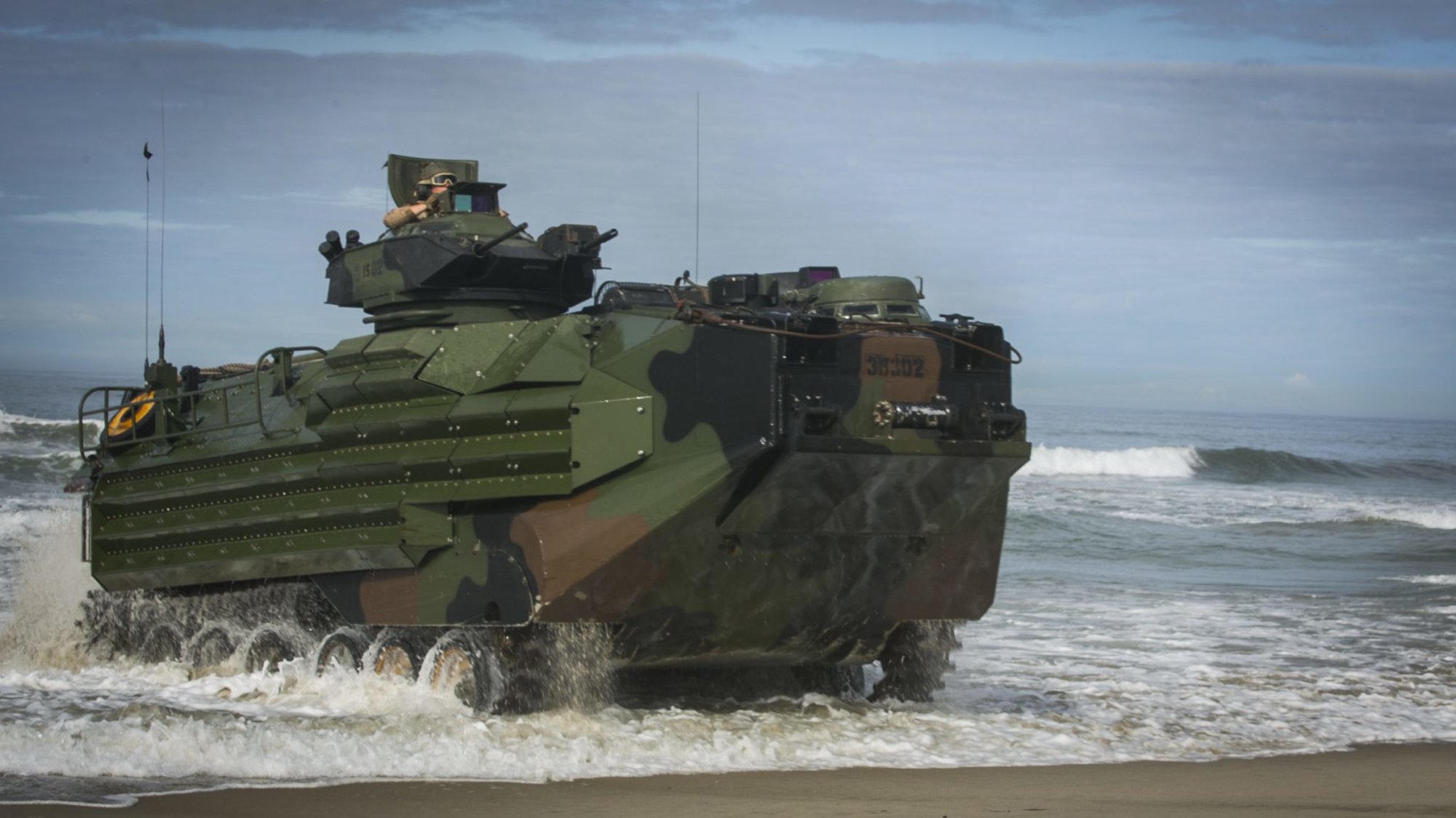
The Marine Corps has not publicly released its findings from the investigation into the cause of the AAV mishap, but officials told Coffee or Die Magazine details of the investigation will be released to the public once all family members of those who perished have been notified.
“We will provide the results of the investigation to the families of our fallen Marines and Sailor before releasing details to the public,” Capt. Andrew Wood, a Marine spokesman, said.
Killed in the accident were Cpls. Wesley Rodd and Cesar A. Villanueva; Lance Cpls. Marco Barranco, Guillermo Perez, and Chase D. Sweetwood; Pfcs. Bryan Baltierra, Evan Bath, and Jack Ryan Ostrovsky; and Navy Hospitalman Christopher Gnem.
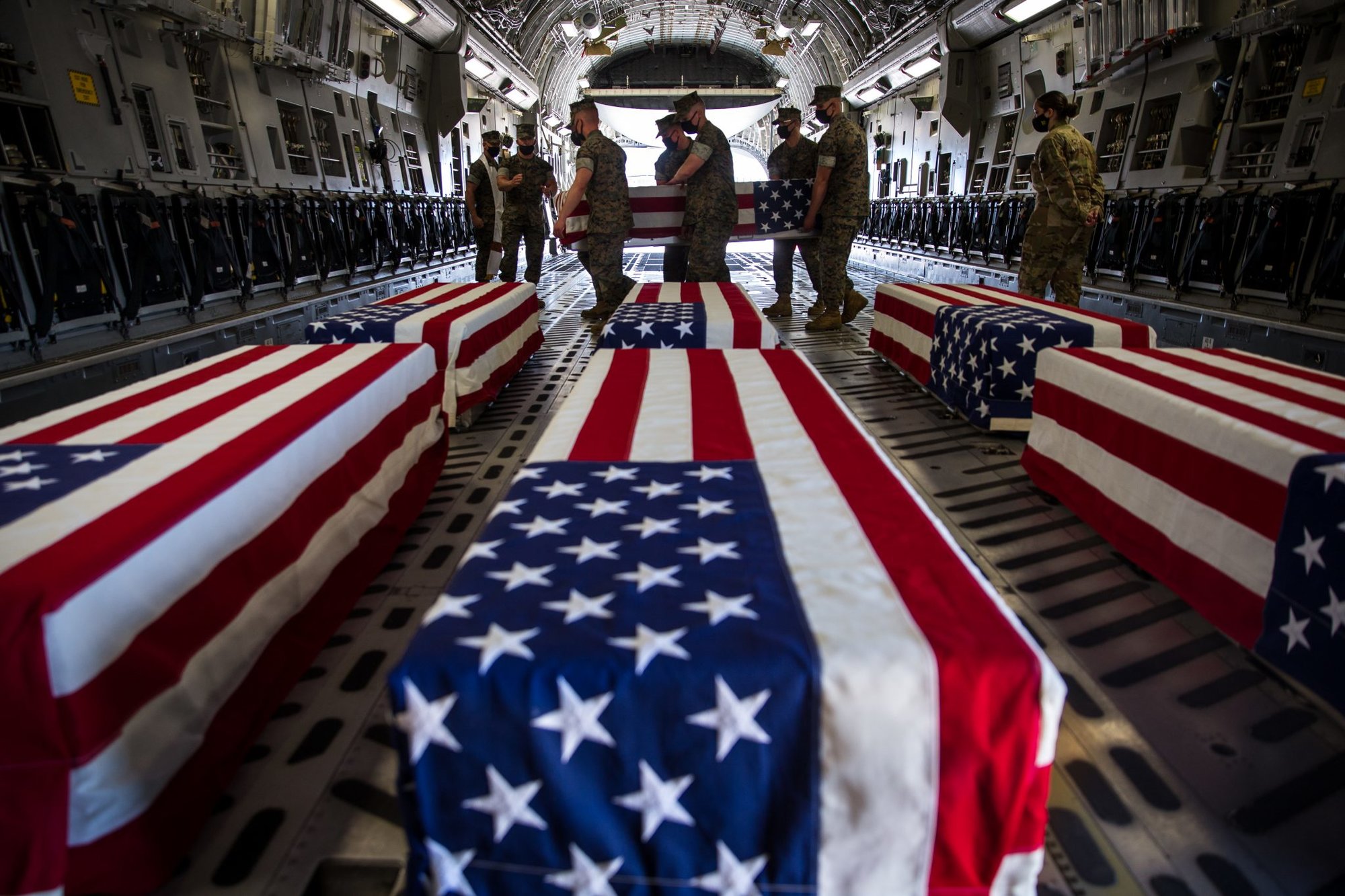
“It has been a living nightmare,” Christiana Sweetwood, Chase Sweetwood’s mother, told the Orange County Register recently. “They took not just my kid, but they took my life from me in every aspect. I don’t just want answers from the report. I want justice. We’ve all gotten a lot of ‘I’m sorrys.’ I don’t want anyone else to tell me they’re sorry. We need answers.”
The Marine Corps halted all AAV water operations the day after the accident last summer. Commandant Gen. David Berger ordered the entire fleet of more than 800 AAVs to be inspected until the cause of the accident was determined.
The Marine Corps is in the process of replacing its fleet of AAVs with the new Amphibious Combat Vehicle, which will be the Marine Corps’ main transport for getting troops from ship to shore and even across varied terrain once it has landed.
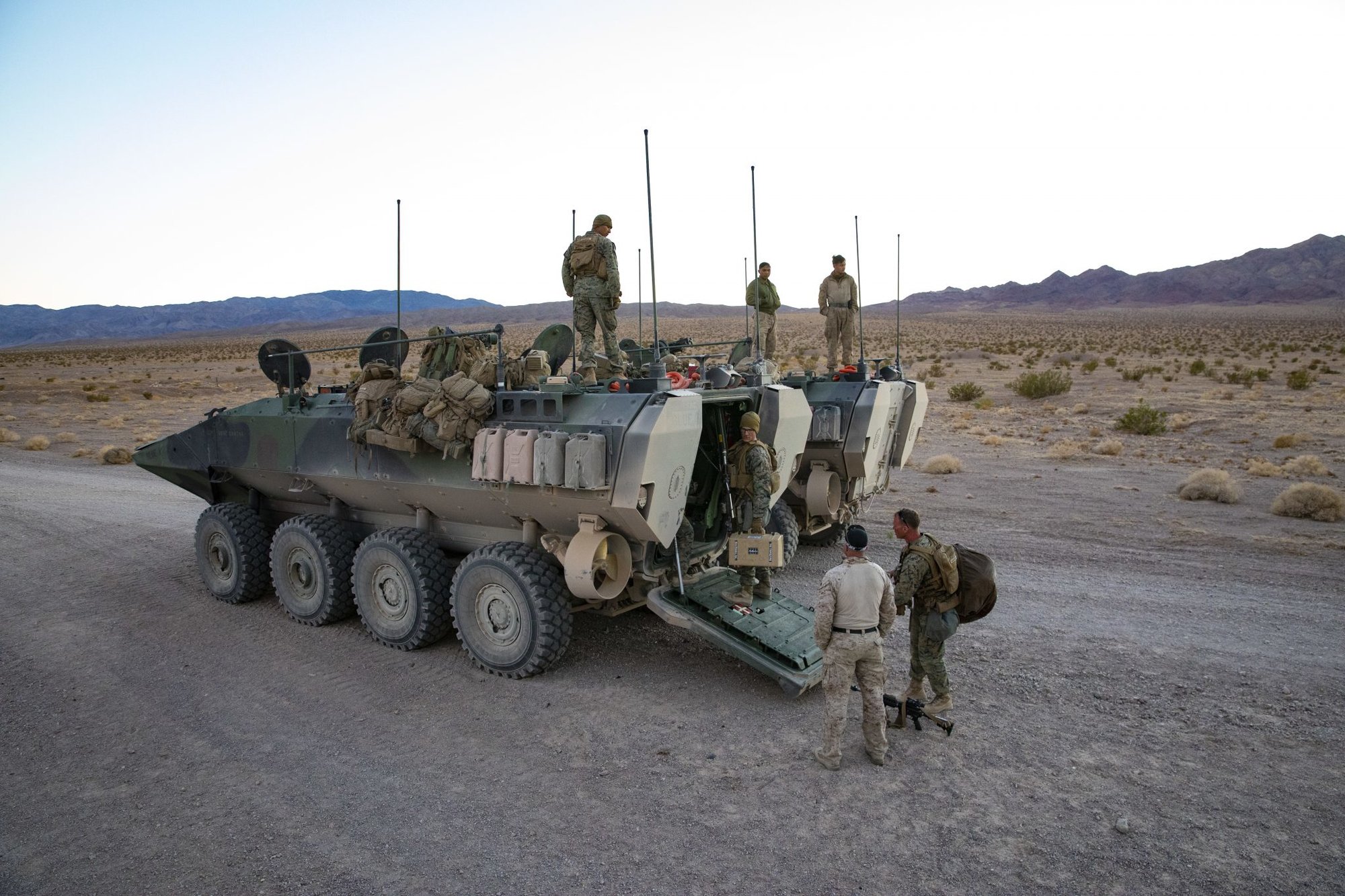
In September, following months of evaluation and testing with 18 ACVs, Marines from the 3rd Assault Amphibian Battalion reported that the ACV exceeded the capabilities of the AAV, according to the Orange County Register.
The ACV is built by BAE Systems, and the military signed a $198 million deal in 2018 for 30 vehicles. The first vehicles arrived on the West Coast in late 2019, and two more lots of 36 vehicles have been contracted to go to Camp Lejeune’s 2nd Marine Division and Marine units in Okinawa, Japan, the OC Register reported last week. More than 200 vehicles are expected to be in service by 2028 and will cost more than $1 billion, Marine officials said.
“The new amphibious vehicles — which military officials say are a much-needed modernization for the Marine Corps’ ground combat operation — will phase out the more than 40-year-old vehicles currently in use, many of which require 15 hours of maintenance for every hour of service,” the OC Register’s Erika Ritchie reported. “Often, parts are no longer manufactured, forcing crews to cannibalize older vehicles for parts.”

Ethan E. Rocke is a contributor and former senior editor for Coffee or Die Magazine, a New York Times bestselling author, and award-winning photographer and filmmaker. He is a veteran of the US Army and Marine Corps. His work has been published in Maxim Magazine, American Legion Magazine, and many others. He is co-author of The Last Punisher: A SEAL Team THREE Sniper’s True Account of the Battle of Ramadi.
BRCC and Bad Moon Print Press team up for an exclusive, limited-edition T-shirt design!
BRCC partners with Team Room Design for an exclusive T-shirt release!
Thirty Seconds Out has partnered with BRCC for an exclusive shirt design invoking the God of Winter.
Lucas O'Hara of Grizzly Forge has teamed up with BRCC for a badass, exclusive Shirt Club T-shirt design featuring his most popular knife and tiomahawk.
Coffee or Die sits down with one of the graphic designers behind Black Rifle Coffee's signature look and vibe.
Biden will award the Medal of Honor to a Vietnam War Army helicopter pilot who risked his life to save a reconnaissance team from almost certain death.
Ever wonder how much Jack Mandaville would f*ck sh*t up if he went back in time? The American Revolution didn't even see him coming.
A nearly 200-year-old West Point time capsule that at first appeared to yield little more than dust contains hidden treasure, the US Military Academy said.












